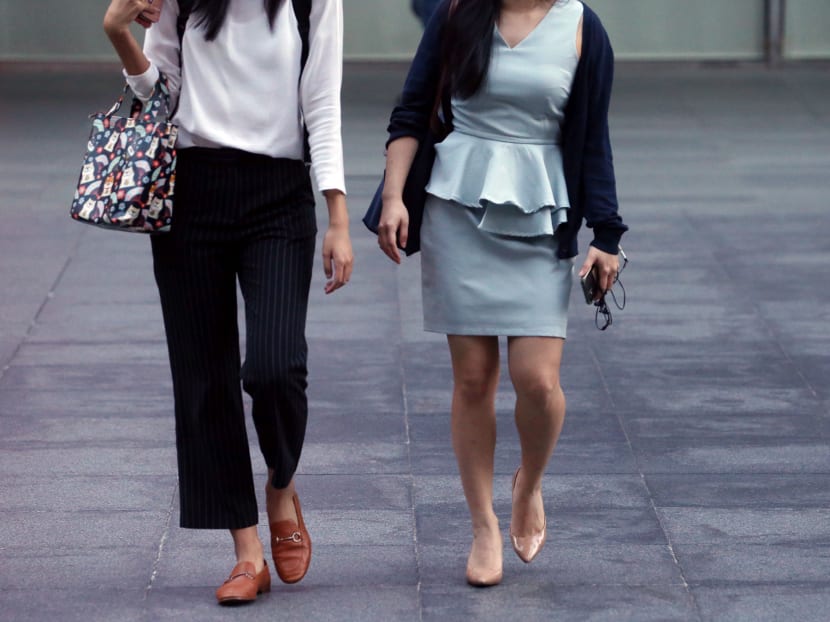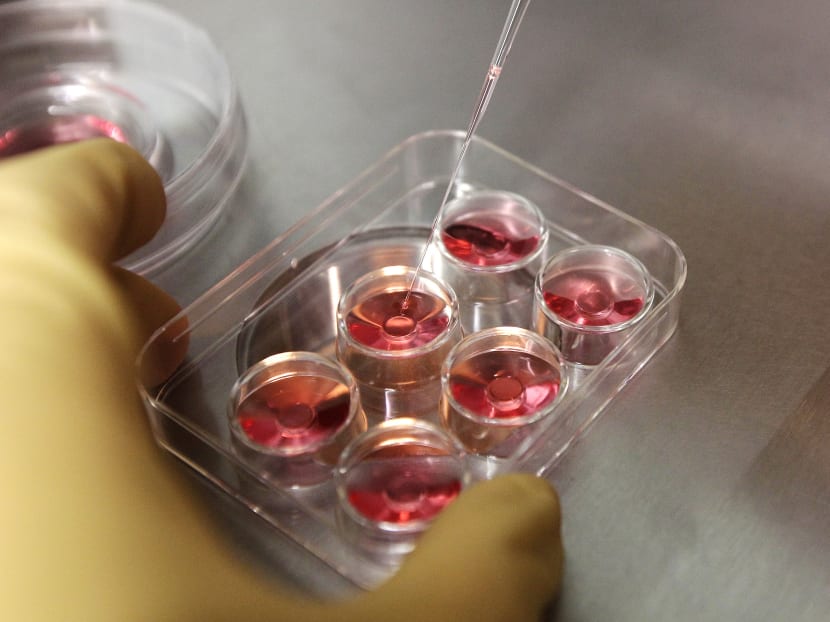Allowing egg-freezing among recommendations on women's issues by PAP’s Women’s Wing and Young PAP
SINGAPORE — In its first joint submission, the Women's Wing and Young PAP of the People’s Action Party (PAP) have put up a total of 12 recommendations to tackle issues affecting women here, including asking the Government to allow women to freeze their eggs.
- The PAP Women’s Wing and Youth PAP said there is “an urgent need” for the Government to review its position on egg-freezing for non-medical reasons
- They also recommended that it lifts the limit on the number of maternity leave days mothers may share with their husbands as paternity leave
- Another proposal was to have a “timely and regular update” of the sex education curriculum, with special focus on secondary school pupils
SINGAPORE — In its first joint submission, the Women's Wing and Young PAP of the People’s Action Party (PAP) have put up a total of 12 recommendations to tackle issues affecting women here, including asking the Government to allow women to freeze their eggs.
Other recommendations in the paper, which was released on Thursday (July 29), included creating a support network for single mothers, enhancing options for long-term home-based care for elders and promoting open reporting of workplace harassment.
The paper also looked at rallying the whole of society to change mindsets and advance women’s developments while recognising that men can also help remove such barriers.
The set of recommendations was developed from the views and suggestions of about 1,500 members of the public, party activists, and community partners through dialogues and surveys over the past year, PAP said in a media release.
The following are some of the recommendations listed in the paper.
1. Allow women to freeze their eggs
While a number of countries such as Australia, Malaysia and Thailand allow women to freeze their eggs for use later, Singapore does not allow this except for medical reasons such as for cancer patients undergoing chemotherapy, which could adversely affect a woman’s fertility.
The paper pointed out that the quality of a woman’s eggs declines over time and there is value in giving a woman the option to preserve her eggs when she is younger.
The Women’s Wing and Youth PAP said that there was a need to shift the mindset that allowing women to freeze their eggs encourages them to delay finding a partner and having a child.
There is “an urgent need” for the Government to review its current position on egg-freezing for non-medical reasons, they said.
They pointed out that some women are already going overseas to freeze their eggs.
During a session to introduce the paper on Thursday morning, Ms Cheng Li Hui, Member of Parliament (MP) for Tampines Group Representation Constituency (GRC), said that some women who wish to freeze their eggs overseas are unable to do so now because of travel restrictions and the quality of their eggs will decline with each passing year.
The paper said that to provide some control, it may be necessary to put in place a regulatory framework to impose conditions or limit the use of the eggs to certain circumstances, for example, only within the confines of marriage.
Their latest recommendation on egg freezing comes after a paper by the Women’s Wing in 2019 called for the removal of the age limit of 45 years for females to access in-vitro fertilisation (IVF).
As part of this recommendation, it said that more than 60 per cent of the respondents in a survey that it had done supported egg-freezing and it asked the Ministry of Health to “study the topic more deeply to assess the way forward”.
During Thursday’s session, when asked by a reporter how they will deal with pushback from conservatives and religious groups who may call egg-freezing an unnatural process, Madam Rahayu Mahzam, Parliamentary Secretary for Health and MP for Jurong GRC, said: “I can't say for all religions, but many of the religions are also very cognisant of some of the real challenges that people face. And I think this is something we need to have them be aware of and have that conversation.”
2. Create a national reproductive health screening programme for married couples
The Women’s Wing and Youth PAP said that while many women are starting to plan or build their families between the ages of 30 and 35, there has not been a concerted effort to help women understand more about their reproductive health, fertility and the choices they have.
“Some of them may face challenges in conceiving — they feel a lack of support and the social pressures on them. The assumption often made by people in the community is that the 'fault' lies with the woman in not being able to conceive,” they said in the paper.
They proposed that the Government encourage couples early on in their marriage to undergo a national reproductive health screening or learn more about their reproductive health.

3. Help women enter and progress in growth sectors
To close the gap between what men and women earn, the Women’s Wing and Youth PAP said that more women need to be involved in emerging and growth sectors, including fields related to the discplines of science, technology, engineering and mathematics (Stem). These would be sectors in advanced manufacturing, healthcare and biomedical sciences, for instance.
To address this, existing movements such as SG Women in Tech movement should be leveraged to encourage girls to take up a career in Stem-related fields.
More female role models to act as mentors could also help to inspire girls to pursue technology-related or Stem subjects in school.
4. Give parents flexibility to decide how to share maternity, paternity leave
Many more fathers are now playing a very active role in caregiving, but a culture where caring for children is gender-neutral needs to be created, the paper said.
They recommended that the Government lift the limit on the number of maternity leave days that mothers may share with their husbands as paternity leave. For now, working fathers may apply to share up to four weeks of their wife’s 16 weeks of paid maternity leave.
Such a move would give full flexibility to a couple to decide whether the father or mother takes on the caregiving role, signalling that both parents are in a position to share the caregiving role equally.
They added that employers should also be encouraged to allow fathers to take leave or time-off to perform their caregiving roles.
5. Update the sex education curriculum
On sex education, the paper said: “In our conversations, many observed that the transgressions that we see happening against women are a result of a lack of respect for women.”
It added that there is now more access to hypersexualised content, and constant exposure has normalised the degradation of women and girls.
It proposes a “timely and regular update” of the sex education curriculum, giving a special focus to students in secondary schools who may be the most vulnerable while they navigate puberty.
Schools should look to curate an appropriate curriculum and consider involving partners such as youth groups that can provide peer support.
Parents should also be equipped with knowledge and skills to have their own conversations on sexual matters with their children.












